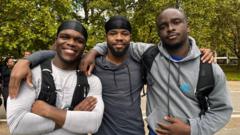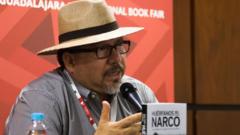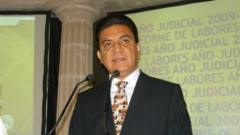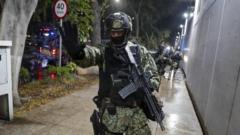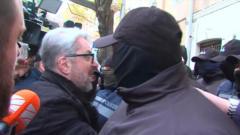The article recounts a secret summit organized by music legend Quincy Jones in 1995, aimed at mitigating the rising tensions between East and West Coast rap artists. Amidst historic rivalries leading to the tragic deaths of Tupac Shakur and Notorious BIG, Jones sought to promote dialogue and understanding within the hip-hop community.**
The 1995 Summit to Curb East-West Hip-Hop Rivalry**
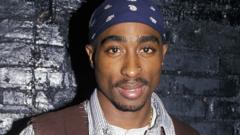
The 1995 Summit to Curb East-West Hip-Hop Rivalry**
Quincy Jones convened influential figures to address the escalating violence in the rap industry during the 1990s.**
Inside the rap world of the 1990s, the escalating tensions between East and West Coast artists threatened to overshadow the music's artistic expression. Legendary producer Quincy Jones took the initiative to address this alarming violence by organizing a secret summit in 1995, hoping to prevent further tragedies in the genre.
As hip-hop transcended from underground culture to mainstream success, the lack of influential role models who navigated this path before became evident. Quincy Jones, having faced his own struggles growing up in 1930s Chicago, brought a wealth of experience to the table. Known for his significant contributions across genres, Jones recognized the burgeoning threat of conflict within hip-hop and aimed to intervene.
In a bid to unite the hip-hop community, Jones gathered an impressive roster of artists, executives, and prominent figures at the summit. Notable attendees included Suge Knight of Death Row Records, P Diddy of Bad Boy Records, and various groundbreaking artists such as Public Enemy’s Chuck D. The meeting was conceived not just to address the underlying tensions but also to provide invaluable guidance on the business landscape of hip-hop.
The atmosphere was thick with anticipation. Jones highlighted the issue of violence stemming from the rivalry between respective coasts, particularly spurred by previous altercations and tragic incidents involving star artists like Tupac and Biggie. His commitment to fostering dialogue stemmed from his understanding of the risks ahead. “We can no longer afford to be non-political,” he declared during the conference.
Coloring the conversation was the notable absence of Tupac Shakur, who at the time was incarcerated. Despite this, the meeting also featured influential figures such as Colin Powell, whose presence underscored the importance of the event. The discussions included strategies for promoting peace and unity in the hip-hop ecosystem.
However, the meeting remained confidential, and while Jones expressed optimism about making a positive change, the reality was stark; the forces of rivalry and jealousy within the industry would soon prove uncontrollable. Tragically, just a year later, both Tupac and Biggie would lose their lives to violence that many believed could have been averted.
Today, the summit serves as a poignant reminder of the potential for dialogue amidst cultural divides. Reflecting on the nature of the gathering, Fab 5 Freddy, the event's moderator, remarked on its electric energy, emphasizing the lessons learned, even amidst the chaos. Despite the bloodshed that followed, Jones' efforts at the summit highlighted the importance of unity and understanding in an era marked by dramatic cultural change and conflict.


